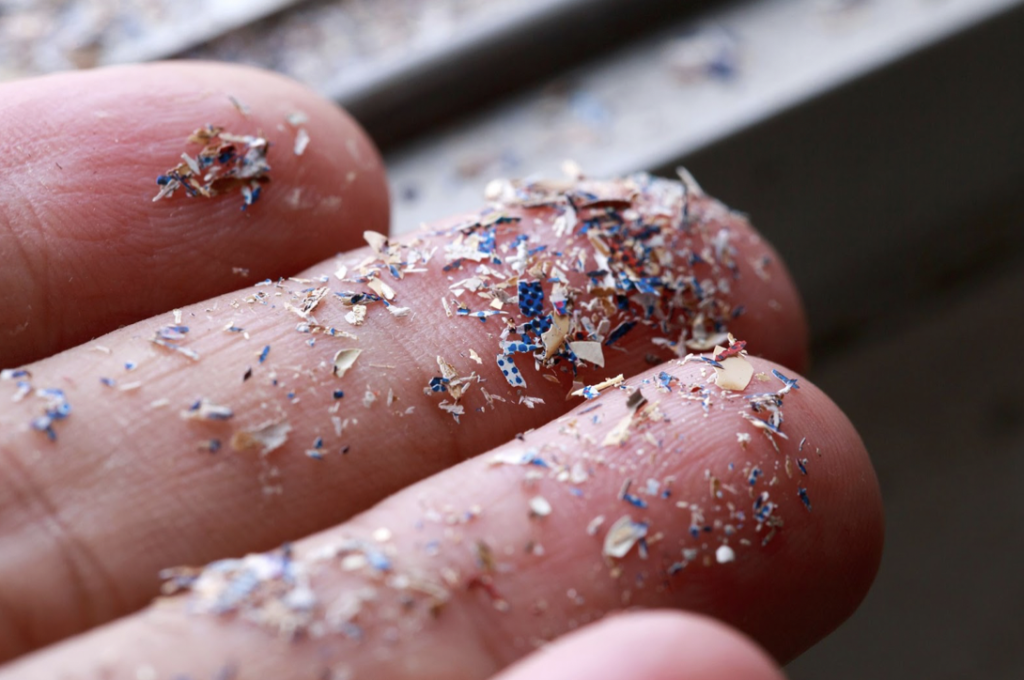Microplastics in You

Courtesy of NBC News
By Eduardo Castillon
You probably use items containing plastic everyday. But you’ve also probably never considered that they may be harming you. Back in 2005, University of Cincinnati assosciate professor Scott Belcher discovered the negative estrogenic effects of bisphenol A (BPA), a compound found in many kitchen containers. Prior research had already indicated a link between BPA and forms of cancer. Additionally, BPAs act as disruptors for the endocrine system, which is our network of organs in charge of hormone production. Dr. Belcher’s research pointed to BPA inhibiting estrogen during key growth periods for brain tissue. With more research coming out since then, it may be time to reconsider plastics in the home and look for alternatives.
Perhaps the scariest part of the research completed was the relatively low amount of BPA needed to rapidly produce negative growth effects. Belcher’s study reported: “…analysis of cellular and molecular markers of estrogen signaling revealed that near-maximal effects of BPA on rat brain neurons not only occurred ‘at surprisingly low’ doses of 0.23 parts per trillion, they also happened in a matter of minutes.” Dr. Belcher’s lab may have been testing rats, but these low levels of BPA exposure is common with humans. Estrogen plays a vital role in neuron growth for both men and women during their development, meaning BPA’s function in blocking estrogen creates potential long-term risks. However, switching to BPA-free products may not be so easy.
Originally, BPA-containing plastics were employed to better protect food packaging from bacteria like botulism. But even supposedly BPA-free products may simply use similar compounds like Bisphenol S (BPS) that functionally produce the same harmful effects. In a 2016 endocrinology study looking at zebrafish, scientists found that BPA and BPS at equivalent concentrations produce similar changes to neurons and genes involved in reproduction. The scientists concluded: “Altogether, these data suggest that both BPA and BPS have the potential to impact development of the reproductive system.” Pointless alternatives may suggest one to avoid plastics entirely, but even if someone could avoid the countless BPA-containing products in the market, it may already be too late.
Last year, researchers in the Netherlands and U.K. found traces of microplastics in human blood. In two studies, they identified the samples in the lungs of surgical patients and even donated blood. These tiny plastic fragments have been around for a while but only recently have been the focus of research. Microplastics were named by Marine Scientist Richard Thompson, who spotted thousands of pieces, often as small as grains of sand, floating in the ocean.
Dumped plastics have already been an issue of concern as they pose a threat to natural environments. The miniscule eroded shards become trapped in fish and other sea creatures, which are also caught and served up as food everyday. Mussels in particular have been used as bioindicators to measure the concentration of microplastics. The presence of so many microplastics in the oceans creates varied methods for them to in turn find their ways into humans.
Compounds akin to BPA are found in a lot of this plastic waste, and the exposure through food, drinking water, and air can all pose potential health concerns. In men, BPA exposure was found to negatively impact fertility. In women, significant BPA concentrations were found to promote heart arrhythmia. For pregnancies, endocrine disruptors can actually transfer through human placenta to fetuses. The degree to which we are exposed everyday is hard to estimate, but according to the NIH most plastic products release estrogenic chemicals. Fortunately, those same NIH researchers identified safer alternatives to these endocrine disrupting compounds that also wouldn’t cost significantly more to produce.
So how should you avoid these harmful chemicals? It may not be possible to completely eliminate your exposure, but you still might want to limit plastics in your life. Glass containers rather than plastic tupperware, although more costly, can also serve to store food. Swap plastic cutting boards that could contaminate raw meat with wooden ones instead. Especially avoid heating plastics such as bowls, ziplock bags, or plastic wrap, even if they’re microwave safe. Ultimately, we can only strive for a world with less plastic threatening our bodies and our environment by reducing our plastic waste and getting corporations to do the same.







